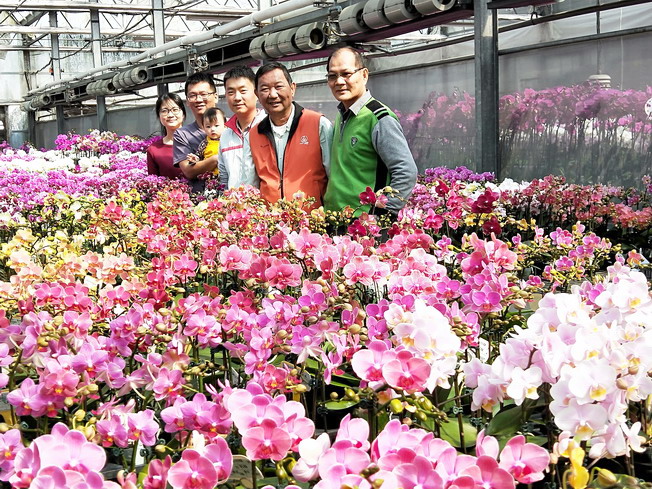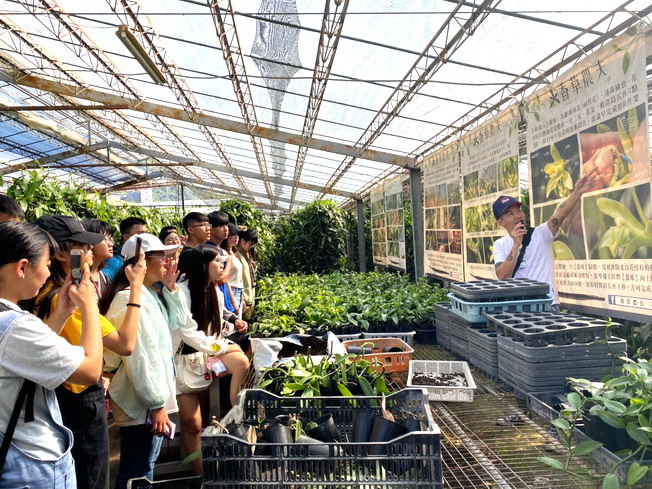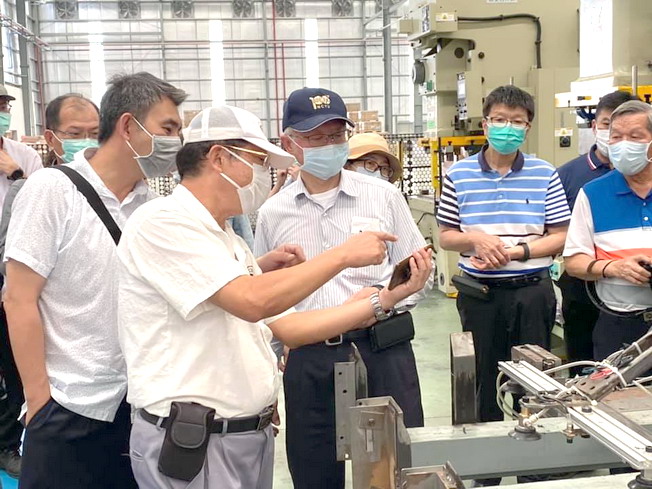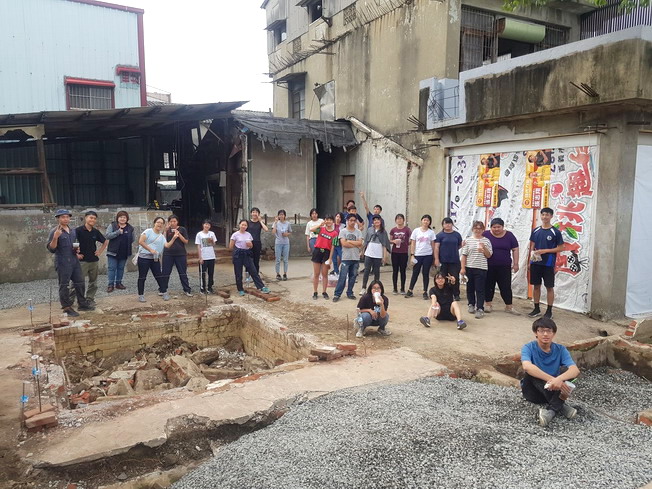| |
 |
News |
 |
Browsing: 1897 times

|
Date:2021-03-22
Bracket:2021 Feature
Department:ncyu
|
 Smart Technology Taking Root in Agriculture
Smart Technology Taking Root in Agriculture
A Smart Farming Future Characterized by Artificial Intelligence (AI), Big Data (IR) and Internet Of Things (IoT)
In conjunction with the country’s new agricultural policy, the NCYU College of Agriculture has been collaborating with the agricultural authorities in offering guidance to farmers in the Yunlin-Chiayi-Tainan region in growing high-quality agricultural products and improving monitoring efficiency by using artificial intelligence (AI) image recognition system; and improving traditional farming practices with field robots, which effectively reduces labor work and enhances accuracy. In addition to enhancing students’ practical experience, it has been assisting farmers in real-time control of crop growth and health assessment, and thus reducing the risks in cultivation. Furthermore, application of big data analysis (IR) and Internet of Things (IoT) to agricultural production enables the government and farmers to effectively measure the amounts of various agricultural products and prevent an imbalance of production and sales of agricultural products.
In 2020, NCYU signed an agreement with iBase Technology Inc., an OTC company, on conducting an academic-industrial cooperation project to establish the Smart Agriculture Command Center System. In the earlier phase, the strawberry greenhouse, one of NCYU’s indoor cultivation facilities, is installed with the smart environmental monitoring system designed by iBase Technology. Data is collected through the IoT network technology and iBase Technology’s AGS100 gateway system as the edge computing equipment. Cultivation environment parameters within the strawberry greenhouse, e.g. soil, temperature or humidity in the surroundings, is uploaded to the server database system of the Command Center for further analysis. It can also be used to enrich the agricultural database. In the future, the center is expected to work with experimental greenhouses and test fields in various research fields of the College of Agriculture on a gradual basis. Apart from collecting data to set up a big database, intelligent automatic operations ranging from temperature and humidity monitoring, watering, fertilization, and drinking water and feed dispensing will be carried out through remote control, thus unveiling the new era of smart agriculture by reducing labor work and precisely adjusting usage.
Agriculture is the Foundation of a Country: Ecology and Technology Coexisting in the New Agricultural Age
Agriculture is a practical science that aims to achieve the goal of sustainable management in “production, life, ecology” by putting theory into practice through “education, research and promotion services.” To reach the goal of sustainable agricultural development in terms of agronomy and horticultural sciences, the NCYU College of Agriculture is commited to developing eco-friendly, organic and natural farming methods to create virtuous cycles of ecological management, and assisti farmers in cultivating high-quality agricultural products. It also provides diversified career development and choices through training professionals with smart production and digital service skills. With “student farm” as the base, the NCYU College of Agriculture hopes to promote rural landscape regeneration and development planning, and optimize tourism and cross-field integration of regional industries by promoting leisure agriculture. Biotechnology and molecular biology are adopted in the field of smart/precision agriculture, as biotechnology is employed in terms of agricultural development to integrate traditional agricultural science with modern biotechnological perspectives. Complete with animal and plant gene transfer, plant tissue culture, development and utilization of agricultural microorganisms, DNA vaccines, agricultural molecular testing, etc., it is expected to help reduce the education-job mismatch, and enhance students’ employability.
Taiwan is the world’s second largest exporter of Phalaenopsis, with a global market share of more than 30%, and an annual output value worth more than NT$6 billion. The world-known Taiwan International Orchid Show is one of the world’s three largest orchid exhibitions. Located at the foot of Alishan, NCYU, who plays an important role in the development of orchid industry of Taiwan, is reputed to “hold up half the sky for Taiwan’s orchid industry.” The nationally known Program of Orchid Biotechnology and Horticultural Technology Center, established under the NCYU Department of Horticultural Science, have been nurturing orchid professionals who align with expectations and meet demands of the workplace. As many managers and cadres of well-known orchid gardens in Taiwan are its alumni, the department can be called the cradle of orchid professionals.
Facilitating Education on Sustainable Resource Management to Enhance Students’Competitiveness in the Job Market
In terms of forestry, the “precision forestry management technology system” was newly created at the NCYU College of Agriculture to nurture skills for resource management investigation and management plan planning. In the field of afforestation, they hope to facilitate the application and development of tissue culture technology for conservation plants in Taiwan. In terms of conservation, the College of Agriculture is one of the leaders in ecology studies on leopard cats and dark woolly bats in Taiwan. Wood science reaches another breakthrough with technological wisdom. To shed light on the foresight and future of the wood furniture industry, they have been facilitating international exchange partnership and overseas internships through wood processing, wood industry economy, wood product design, international wood trade, etc. The objective is to provide participants with paid overseas internships and diplomas, and help enhance their international employability, and bridge the gap between academia and industry. As both theory and practice in professional knowledge and smart technology matter in the animal industry, they hope to focus on basic intelligence, animal nutrition, physiology, genetics and breeding, livestock production and pasture management, and animal product processing and utilization, among others. All these allow the students to stay attuned to market demands.
Publicly Funded Agricultural Programs to Train Agricultural Professionals of the Next Generation
In conjunction with the “New Generation of Agricultural Worker Development Project” implemented by the Council of Agriculture, Executive Yuan, the NCYU College of Agriculture spearheaded in assisting the government to construct a four-year publicly funded professional training system for students who are required to be engaged in farming for at least four years after graduation. It is targeted to nurture practitioners with professional knowledge and competencies in modern farming and pasture management and marketing, bridge the gap between education and policy, and increase the proportion of young people engaged in farming. As many universities in Taiwan have taken the task to cultivate agricultural professionals, NCYU, which is located in the agricultural hub of the Yunlin-Chiayi-Tainan region with a solid foundation in agronomy education, sees it as its responsibility to do so. Incorporating smart technology into traditional agricultural education is key to shaping the future of Taiwan’s agriculture, characterized by modernization and sustainability.
|



|
 |

|
 |
|
 |
 |
|


 ][
][